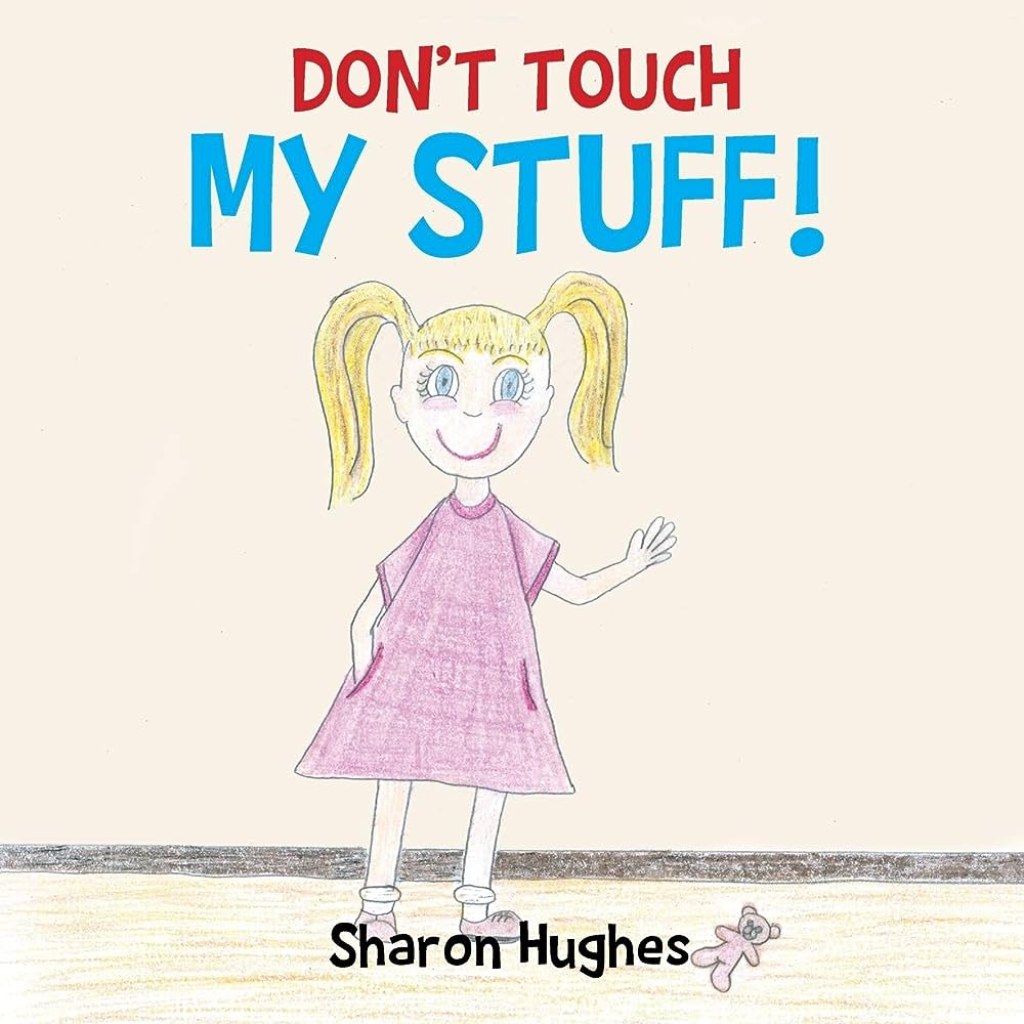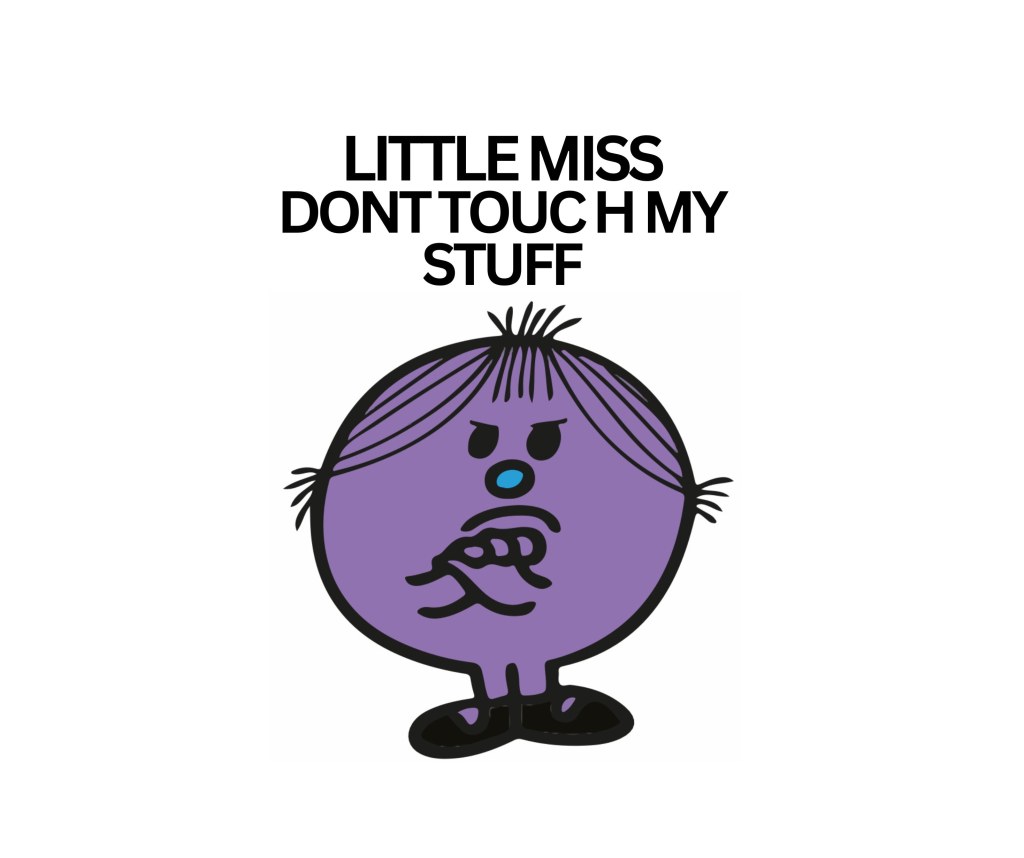Hands Off! Protect Your Territory: Don’t Touch My Stuff – Take Action Now!
Dont Touch My Stuff: Protecting Your Belongings with Confidence
Welcome, Smart Peoples! In this article, we will delve into the topic of Dont Touch My Stuff and explore its significance in safeguarding your personal belongings. We all know how frustrating it can be when someone invades our personal space or misuses our possessions. Here, you will discover the reasons behind this phenomenon and learn effective ways to protect your stuff. So, let’s dive in!
1. What is Dont Touch My Stuff?
2 Picture Gallery: Hands Off! Protect Your Territory: Don’t Touch My Stuff – Take Action Now!


🔍 At its core, Dont Touch My Stuff refers to the notion of setting boundaries and asserting ownership over personal belongings. It is a concept that has gained prominence in today’s society, where respecting others’ property has become increasingly important.
Understanding the Importance

Image Source: media-amazon.com
🔑 Respecting personal boundaries and possessions is crucial for maintaining healthy relationships and fostering a sense of trust. Whether it’s your workspace, home, or even your favorite coffee mug, asserting ownership helps create a safe and harmonious environment.
Setting the Scene
🎥 Picture this: you’ve just settled into your favorite coffee shop, laptop open and ready to tackle your day’s tasks. You step away for a brief moment, only to return and find a stranger sitting at your table, sipping from your cup. How would you feel? This scenario highlights the importance of the Dont Touch My Stuff principle.
2. Who Does Dont Touch My Stuff Apply To?

Image Source: etsystatic.com
🚪 Dont Touch My Stuff applies to everyone, regardless of age, gender, or social status. It is a universal concept that encourages respect for personal property and boundaries. Whether you’re at home, work, or in public spaces, this principle is applicable to all individuals.
Respecting Personal Space
📏 Personal space is an integral part of one’s identity and well-being. By respecting others’ personal space, we contribute to a more harmonious and respectful society. Dont Touch My Stuff plays a vital role in nurturing this respect.
Teaching the Younger Generation
👦👧 As responsible adults, it is our duty to instill the importance of respecting others’ belongings and boundaries in the younger generation. By teaching children to honor personal space, we foster a sense of empathy and respect that will benefit them throughout their lives.
3. When Should You Assert Dont Touch My Stuff?
⏰ Asserting Dont Touch My Stuff is essential in various situations where your personal belongings may be at risk. Here are a few instances where this principle becomes particularly relevant:
In the Workplace
💼 Your workspace, whether it’s a desk or a shared area, should be respected by your colleagues. Asserting Dont Touch My Stuff in this context establishes boundaries and preserves a professional environment.
At Home
🏠 Your home is your sanctuary, and it’s essential to create an environment where your personal belongings are respected. Asserting Dont Touch My Stuff ensures that your privacy is upheld and your possessions remain secure.
4. Where Does Dont Touch My Stuff Apply?
🌍 Dont Touch My Stuff applies in various settings, from the intimate confines of your home to public spaces where respecting others’ belongings is crucial. Here are a few places where this principle holds significant importance:
Cafes and Restaurants
☕🍴 When you visit a café or restaurant, your belongings should remain untouched while you enjoy your meal or sip your coffee. Asserting Dont Touch My Stuff in these settings ensures that your personal space and belongings are respected.
Public Transportation
🚌🚇 Whether you’re on a bus, train, or any other mode of public transportation, it’s important to assert Dont Touch My Stuff. By doing so, you create a sense of security and ensure that your belongings remain safe.
5. Why is Dont Touch My Stuff Important?
🔒 Dont Touch My Stuff is essential for numerous reasons, all aimed at safeguarding your personal belongings and creating a respectful environment. Here’s why this principle holds profound significance:
Preserving Privacy
🔐 By asserting Dont Touch My Stuff, you establish personal boundaries and preserve your privacy. This respect for personal space is fundamental for mental well-being and maintaining healthy relationships.
Minimizing Loss or Damage
💔 Accidental or intentional mishandling of your belongings can result in loss or damage. Asserting Dont Touch My Stuff helps minimize such risks, ensuring that your possessions remain intact.
6. How Can You Assert Dont Touch My Stuff?
🔐 Asserting Dont Touch My Stuff can be done in various ways, depending on the situation and your personal comfort level. Here are a few effective strategies to consider:
Communication
🗣️ Clearly communicate your boundaries to those around you to ensure they understand and respect your personal space and belongings. Open and honest communication is key in asserting Dont Touch My Stuff.
Physical Barriers
🛡️ In certain situations, setting up physical barriers can be an effective way to assert Dont Touch My Stuff. Locks, cabinets, or other security measures can help safeguard your belongings.
7. Advantages and Disadvantages of Dont Touch My Stuff
👍👎 Like any concept, Dont Touch My Stuff has its advantages and disadvantages. Let’s take a closer look at both sides:
Advantages
🌟 Increased sense of security: Asserting Dont Touch My Stuff ensures that your belongings remain safe and secure.
🌟 Preservation of personal boundaries: This principle fosters a respectful environment where personal boundaries are honored.
🌟 Improved relationships: By asserting Dont Touch My Stuff, you establish trust and respect in your relationships, creating a stronger bond.
Disadvantages
🌟 Potential misunderstandings: Asserting Dont Touch My Stuff may lead to misunderstandings if not effectively communicated.
🌟 Perceived as overly possessive: Some individuals may perceive the assertion of Dont Touch My Stuff as being overly possessive.
🌟 Limiting spontaneity: Asserting personal boundaries may limit certain spontaneous interactions or experiences.
Frequently Asked Questions (FAQ)
1. Can asserting Dont Touch My Stuff strain relationships?
Asserting Dont Touch My Stuff can strengthen relationships when communicated effectively. It helps foster respect and trust within the relationship.
2. How do I communicate my personal boundaries without offending others?
When communicating your personal boundaries, approach the conversation with empathy and respect. Clearly explain your needs and listen to the other person’s perspective.
3. What if someone touches my stuff without permission?
If someone touches your belongings without permission, calmly communicate your discomfort and assert your boundaries. Explain the importance of respecting your personal space and possessions.
4. Are there any cultural differences when it comes to personal boundaries?
Yes, cultural differences can influence personal boundaries. It’s important to be aware of and respect cultural norms while asserting Dont Touch My Stuff.
5. Can Dont Touch My Stuff be applied to digital belongings?
Absolutely! Dont Touch My Stuff extends to digital belongings as well. Protect your personal information and digital assets by setting strong passwords and using secure storage options.
Conclusion: Protect Your Belongings, Protect Your Boundaries
🛡️ In a world where personal space is increasingly invaded, asserting Dont Touch My Stuff is more important than ever. By communicating your boundaries and taking necessary precautions, you can protect your belongings and create a respectful environment. Remember, your possessions are an extension of your identity, and by safeguarding them, you are preserving your sense of self. So, embrace the Dont Touch My Stuff principle and enjoy the peace of mind it brings!
Final Remarks
📝 The information provided in this article is intended for educational purposes only and should not be considered legal or professional advice. Each individual situation may vary, and it is important to consult with relevant experts for personalized guidance. Remember to respect others’ boundaries while asserting your own, and always prioritize open communication for a harmonious coexistence.
This post topic: Stuff


